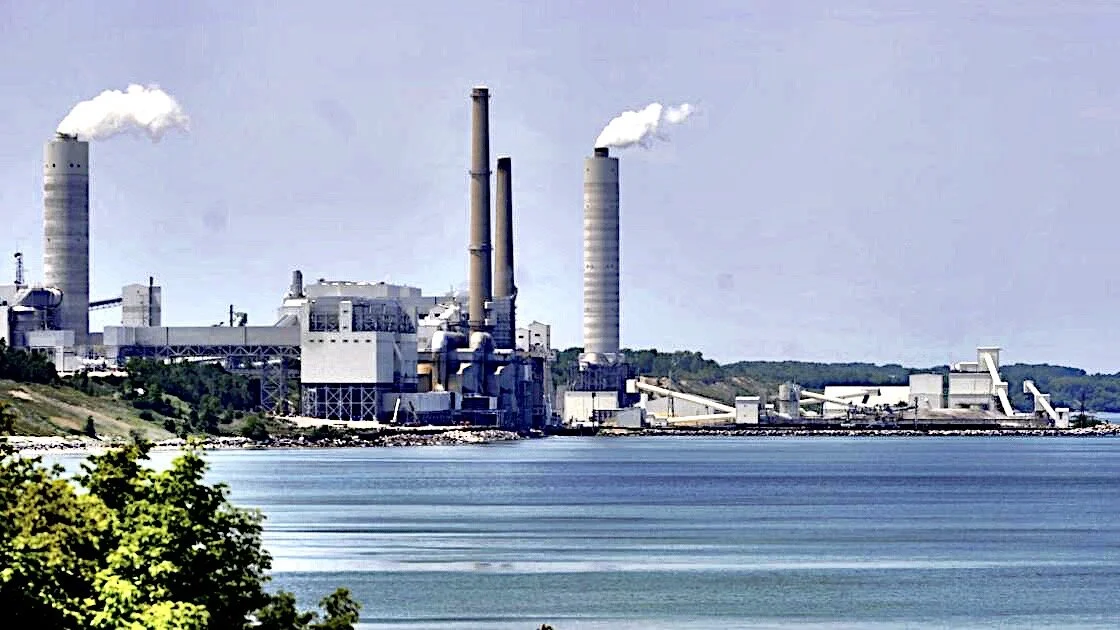Biden-Harris Ticket Will Save Wisconsin Waters from Pollution Devastation
By Carroll Cole
The Trump administration’s rollbacks on energy industry regulations are threatening the future of Wisconsin’s rivers, lakes and streams. Just last Friday, Trump’s Environmental Protection Agency flouted a 2018 D.C. Circuit Court ruling that required power plants to stop storing coal ash in unlined pits—a cheap storage option for the toxic waste, notorious for leaking and contaminating groundwater. Unlined pits, or ponds, present “the greatest risk to human health and the environment,” according to the EPA itself.
“It’s not a good practice to store coal ash in a pond near Lake Michigan or any body of water because, once in the water, it is extremely difficult to remediate it,” said environmental attorney Jeffrey Hammons to Great Lakes Now, a news organization that serves communities around the Great Lakes, the planet’s largest freshwater system. The lakes are a source of drinking water and recreation for tens of millions of Americans.
The EPA’s rule change allows companies to delay closures for years in a move consistent with Trump’s overhaul of climate policy. The current administration has reversed 72 environmental rules with 27 more in progress and has pushed repeatedly to defund the Great Lakes Restoration Initiative. Water does not respect state boundaries, and the systematic deregulation of industry is quietly weaving destruction throughout Midwest coastal communities. Toxic mercury levels are rising in lakes and fish, and beaches were closed due to pathogens more than 100 times this year on Michigan’s coastline alone.
Coal is part of the legacy of the Midwest, along with pine forests, the lakes and their sandy beaches. It powered unprecedented economic growth and kept the lights on for a long time. But now, this outdated resource—and other pollutants—threatens the very water Wisconsinites drink and the air they breathe. My grandfather, a Midwesterner who lived his whole life in the same town in Northwest Indiana, used to say, “Every generation should do better than the last.” When Americans learned that cigarettes caused cancer we banned smoking on flights and tobacco advertisements on television. We created regulations around their sale and use to protect people and children. That’s what the Obama-Biden administration started to do with pollution, addressing climate change on a national scale for the first time in decades with regulations that had been effectively blocked by industry since the 80s.
In 2015, the EPA established the first-ever federal limits on levels of toxic metals, including arsenic, mercury and lead, in wastewater discharged by power plants. Industry regulations hadn’t been updated since 1982 and didn’t reflect technological advancements, to put it lightly. The current administration stalled the new regulations from taking effect and officially revised them this August with much more lenient limits and extended time for companies to make changes—even though costs for upgrading technology have significantly decreased since 2015.
For example, the Oak Creek coal plant, just north of the Illinois border in Wisconsin, overlooking Lake Michigan, would have been forced to reduce their mercury pollution under the 2015 EPA rule. Oak Creek Power Plant is the biggest contributor of toxic metals to Lake Michigan. Instead, its mercury emissions have continued to climb and industry compliance and actions against violators have waned. 62% more facilities were in “significant noncompliance” with the Clean Water Act of 1972 in the fiscal year 2019 compared to the fiscal years 2012 through 2017, according to a report using EPA data by the Chicago-based nonprofit Environmental Law and Policy Center. At the same time, 28% less regulatory cases were initiated by the EPA from the fiscal years 2016 to 2019 than were in the fiscal years 2012 to 2015. The EPA’s staff is at its lowest levels since the Reagan administration. Last year, Wisconsin officials granted the owner of the Oak Creek Power Plant a variance that permits the plant to emit more than three times the state limit of toxic mercury for the next five years.
Mercury is one of a slew of pollutants that are changing Wisconsin’s waters. Anyone who’s had to turn around because of a beach closure has seen the effects of pathogens, like e. coli, on the lakes. Warmer temperatures have led to more rainfall, causing storm surges that overwhelm water treatment infrastructure. The result is contaminated runoff—because the volume is too much to handle at once, the overflow of rain mixes with sewage and farm soil and flows back into Lake Michigan untreated. Nutrient runoff from agriculture, in particular, causes the blue-green algae blooms that are being reported more each year. The lakes continue to break record high levels—as rainfall increases, water and contamination rise and beaches shrink.
Joe Biden and Kamala Harris both have a record of commitment to the environment and detailed plans to continue that legacy. During the Great Recession Vice President Biden was instrumental in getting the American Recovery and Reinvestment Act passed, which made the single largest investment in clean energy at $90 billion. He also helped propel the first fuel economy standards, cutting emissions and saving Americans money at the pump. As Attorney General of California, Harris held companies accountable for environmental violations. She secured an $86 million settlement from Volkswagen, after they cheated on their diesel emissions.
The Biden-Harris ticket is a promise not only to return to common-sense environmental regulation, but to take the initiative to innovate—to tackle the climate crisis before it’s a last-minute dash. The campaign has put forth a $2 trillion plan to reduce carbon emissions and transition the country to clean energy, which will create an entire new sector of jobs.
As the surfing days and fishing spots dwindle, so does time to reverse the damage done. Mother Nature is resilient, but even she has her limits. So, vote Biden-Harris, before we have more water than ever, but none to drink or play in.


